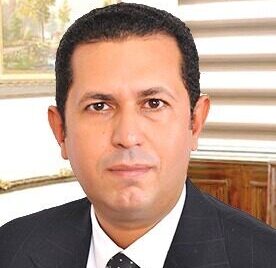After great efforts and working day and night with sincere intentions for the benefit of this country and its people, indicators of Egypt’s economic success began to appear since the state announced many important economic decisions, starting with the agreement on the Ras el-Hekma development project with the UAE, the decisions of the Central Bank of Egypt regarding the exchange rate for currencies, and then the agreement with the International Monetary Fund, and another with the European Union. Later it is expected that an agreement will be made with the World Bank.
These measures prompted the Standard & Poor’s credit rating agency to change its outlook for Egypt from stable to positive after the significant improvement in dollar liquidity.
The credit rating agency believes that liberalising the exchange rate, along with Egypt’s declared commitment to achieving the ambitious budget control goals, represent major steps in enhancing confidence in the Egyptian economy and the ability to bear its debts. It suggests that a significant increase in foreign direct investment and a large donor support programme will lead to improved external liquidity.
The positive forecasts for the Egyptian economy by one of the largest credit rating agencies reflect the possibility of achieving further improvement in Egypt’s external situation and alleviating the shortage of foreign currencies. It also confirms that the flexible exchange rate will help push the growth of the gross domestic product, and over time support the government’s plan to control the situation of Public Finance
Standard & Poor’s sent several positive signals about the Egyptian economy, as it said that it could consider raising Egypt’s rating if net external debt improves faster than expected, explaining that an acceleration in the pace of debt reduction or an increase in foreign direct investment and the availability of foreign currencies on a broader scale may pushes it to raise the rating.
Changing the future outlook for the Egyptian economy to positive means that the agency’s next report will most likely raise the credit rating to a higher degree, which means the availability of stronger financing capabilities for the Egyptian state, and a greater ability to attract foreign direct investments.
Egypt’s passage through its difficult economic crisis and the praise of international credit rating agencies for this prove that its leadership is moving in the right direction.
The agreements and memoranda of understanding that the Egyptian government signed with European governments on the sidelines of the Egyptian-European Summit in Cairo last Sunday prove once again the central role that Egypt plays in its region and its importance to the surrounding regions, and that strengthening its economic and security situation is important to the world and not to Egypt alone.
Despite the economic difficulties it faces, Egypt has become a safe haven for refugees from countries afflicted by unrest or wars. They are treated on an equal footing with Egyptian citizens.
Indeed, when Egyptian President Abdel Fattah El Sisi talks about refugees living in Egypt, he always refers to them as “guests.” They enjoy the same health, educational and other services as Egyptian citizens, without the discrimination.
Yet Cairo is closing the gates of Hell for Europe. Otherwise, Egypt would become a transit point for millions of people fleeing war and conflict on their way to European countries.
Also, Israeli threats to invade the city of Rafah in the south of the Gaza Strip, where more than 1.4 million people are crowded, may cause Gazans to flock towards the Egyptian border, and they may end up trying to cross the Mediterranean Sea in search of safety in Europe.
In light of this, the world realises the important role that Egypt plays for the surrounding regions, and for this reason they extend a helping hand to it, knowing that Egypt has a lot to offer the world.
Mohamed Fahmy is the editor-in-chief
of The Egyptian Gazette and
Egyptian Mail newspapers






Discussion about this post